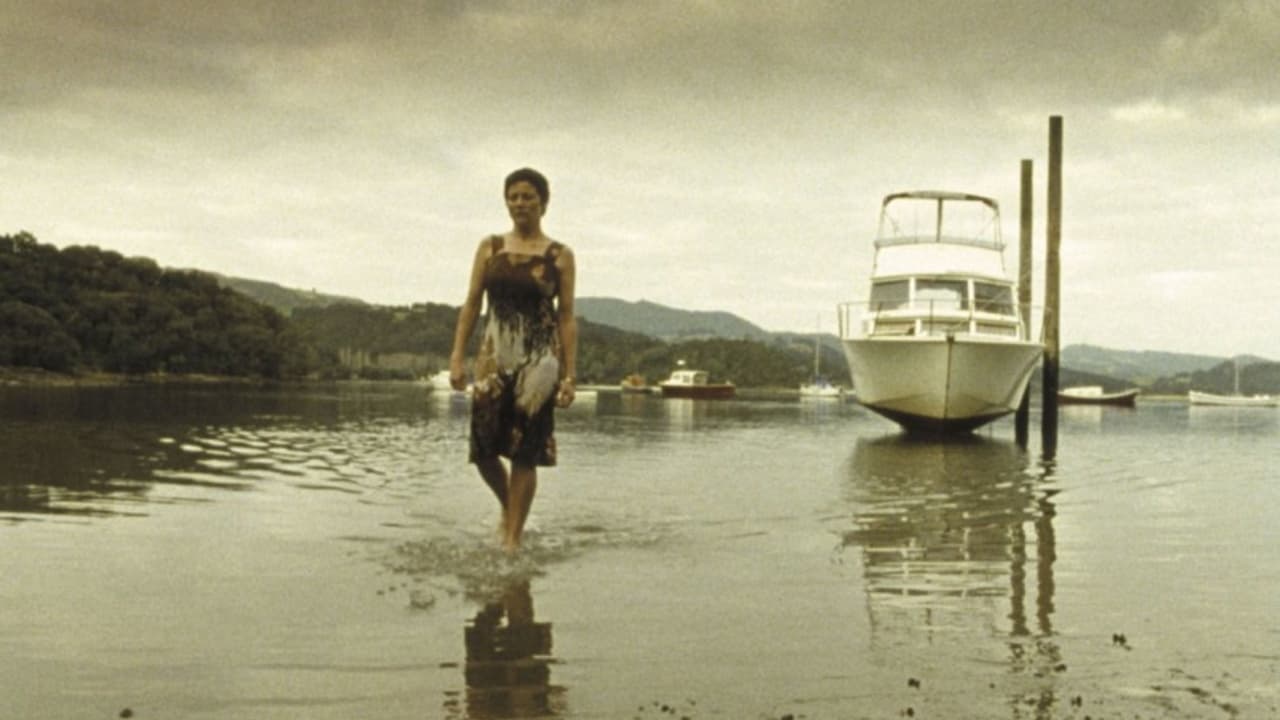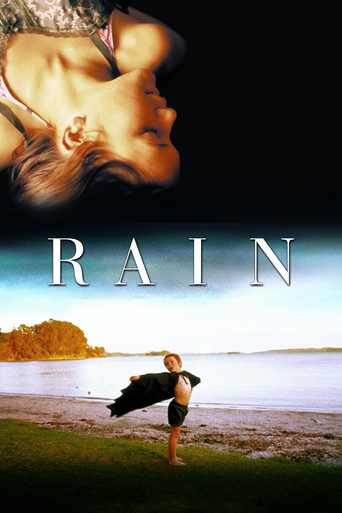



Please don't spend money on this.
everything you have heard about this movie is true.
View MoreThe story, direction, characters, and writing/dialogue is akin to taking a tranquilizer shot to the neck, but everything else was so well done.
View MoreThis is a coming of age storyline that you've seen in one form or another for decades. It takes a truly unique voice to make yet another one worth watching.
View MoreThis movie has a long, long line of events that prepare us for tragic ending. And it still comes unexpected, unless you've read the spoiler-containing comments.Having read other comments, I don't want to repeat what's been written. I'll share some thoughts about author's relation to characters, plot and year it happens.(IF YOU DON'T LIKE LONG COMMENTS SKIP THIS PARAGRAPH) First we notice that the director's relation to characters seems to be rather cold. We see a wife having a barely hidden affair and her husband not caring much. Is he used to, does he have affairs of his own, or he simply has no feelings for his wife any more, or maybe never even had? Or is this a kind of free love from flower-power? Is he resignated and waiting for the divorce, or is this situation convenient for him too? He can drink, stay home, go away, hang around with kids or ignore them and always have an excuse, he has a bad marriage. The parties these people take part night after night with their friends (turists as themselves) seem to be rather wild, with drinks, smoking, and maybe some drugs (I haven't noticed them, but...), wild enough that they (especially mother) need a lot of morning hours to recover (and prepare for next evening). During parties they swim nude, though they are not naturists (we never see them swim nude otherwise, even on such marvelous locations that simply lure for skinny-dipping - I can only dream to ever get there), so it is alcochol that rinses their inhibitions away. A girl, young teenager, has a few drinks, a few cigarettes, and her mother's reaction is weak, maybe just because she has an impression she should say something. But, being the one who is smoking and drinking and going alone with her lover, she knows she can't judge her daughter for following her steps. And the daughter goes forward, she chooses mother's lover to be her own as well. Is this the mother-daughter competition, the way daughter proves herself and builds her self-esteem, maybe trying to save her parent's marriage by taking mother's lover for herself or just imitating mother's behaving? We are left unanswered. (Btw, some people ask what happened between Janey and Cody. Did they watch some cut version, or do they really need an X-rated graphic version to understand what's going on?).After her brother's death there is an interesting, underestimated scene between mother and daughter. The girl blames herself for the accident, and mother comforts her. But this comfort is weak, inconclusive. It looks as if mother found a grain of consciousness but won't admit it and hopes for someone to say it's not her fault either. As they are rivals, both having an affair with same man, their guilt is equal, both were acting against the family. If they comfort and forgive each other, their own guilt will grow and they are not able to cope with it.The way all these events end gives us an answer why is the director on such a distance. She simply doesn't like any of the characters except the little child (as women often do), making him a victim to emphasize all the things she doesn't like in the world she is showing us. And she has no mercy and no understanding for any of these sinful adults.Just remember the last scene when the boy appears alive on the beach. He looks as if he knows it's all over, his world has collapsed, I can imagine this was the way children looked when they realized they'd be sacrificed to ancient pagan gods. This is a look that transfers a director's message: look what (and why!) happened to this cute kid, and most of viewers will agree, yes all those bad, bad people are guilty because of drinking, smoking, taking drugs, nude swimming, dancing, adultery, premarital sex, teenage sex, OK - sex in general; having headaches, pretending to have headaches, making photos, sailing, not sailing, going on holidays... well, doing anything amusing at all. It should all be forbidden to make the world better.Finally, why 1972? It seems as if the authors had some very bad experiences in 1970's and want to confront them. The basic plot could have happened in any period of history (even future), but the year looks to be carefully chosen, and none of the stereotypes people have about those years has been omitted. condemned After Manson "family" killed Sharon Tate and her guests four years before, making people realize the danger of drugs, Easy Rider was history in USA. Some (very) bad things in flower-power made people neglect positive sides of it. Few extreme situations were excuse for some people to terminate freedom movements, and plant a seed of paranoia that is blossoming today. Conclusion: the condemned life style led to L.A. murders, and it also led to Jim's death. We got analyzing the ten commandments one by one, then seven mortal sins, in more strict version than in ordinary churches (Pope John Paul II would forgive this sinners, and imams would maybe call back their fetvas, but there is no mercy from authors). The director must be a Saint herself. But if Christine Jeffs isn't Mother Theresa's pseudonym I can neither understand the authors nor feel sympathy for whatever happened to them in the 1970's.
View MoreI just bought Rain on vhs and I have to say that I really loved it. There were some slow parts, but I think that reflected the environment around them. The two young actors were excellent and the story line was good too. I thought that the whole Janey/Cady scene was going to be a lot more explicit than it was, but I wasn't disappointed. Christine Jeffs made a really great film that hit on some tough subjects but was done tastefully. Rain was a great indie film.
View MoreThe acting (particularly by Alicia Fulford-Wierzbicki) and cinematography of this movie are so well put-together that it makes the movie's horrible cliche of an ending that much more painful and embarrassing.(Here come the spoilers)Jim's death at the end of the movie is a cheap gimmick that director Christine Jeffs telegraphs from square one. It's a lame, moralizing made-for-TV-movie plot device that attempts to somehow punish the film's characters for their perceived moral transgressions (Janey and Jim's parents' drinking and Janey's experimentation with sex). By killing off Jim immediately after (or during, it's not clear) his sister's first experimentation with sex, the cast and crew of "Rain" come across as a bunch of holier-than-thou moralists. "This is what happens when innocent young children are left unsupervised so the adults can go off and drink and have sex," we can almost hear Jeffs saying while she wags her finger at her audience.It's not clear if Jim's death is something taken from Kirsty Gunn's novel or if it's introduced in Jeffs' adaptation. Whatever the case, Jeffs ought to have had the sense not to kill off Jim right after Janey's encounter with Cady. The final quarter or so of the movie should be about Janey coming to grips with her encounter with Cady. Instead, Jeffs rips the focus away from an uncomfortable subject by drowning Jim, after which she tries to tidy up the movie with a quick funeral and another cliche, the "driving home in a car after a tragic event" scene. "And after that summer, I was never the same," we can almost hear Fulford-Wierzbicki saying during the film's final voiceover.It's almost as if Jeffs is afraid to let Fulford-Wierzbicki act out her character's reaction to her sexual awakening, or to show her parents acting out their split on screen. It's an awful way to end a movie, and I can't recommend this movie to anyone but moralizing, condescending types who like nothing more than to see characters suffer for sins that are actually little more than character flaws.
View MoreA family of four vacations at their beach house in 1970's New Zealand. The parents are Kate (played by Sarah Peirse) and Ed (Alistair Browning), while the children are Janey (Alicia Fulford-Wierzbicki, about 13 years old) and Jim (Aaron Murphy, about 8). This sounds rather idyllic, but it is almost immediately obvious that Kate and Ed's marriage is on shaky ground. While the children get along better than most siblings and the parents do seem to care for their children, the adults in the film all drink large quantities of alcohol to numb themselves. The one other significant character is a photographer named Cady (Marton Csokas) who lives on his boat and reminded me a bit of fellow New Zealand actor Russell Crowe. I won't give away much of the plot, because there isn't much there to give away. This is not a criticism -- if anything, it is a compliment to the writers for avoiding unnecessary complications.The main character is Janey, who is in transition from girl to woman. The young first time actress is extremely good and quite believable with this complex material. The boy who plays her brother is also very natural. The adults didn't impress me as much, but then again they were supposed to appear emotionally shut down, and they succeeded admirably. That much of the film's feeling is conveyed without words is a tribute to both the actors and to the direction (by first time director Christine Jeffs). The cinematography didn't seem to me to draw attention to itself, except one shot looking backwards through a hand pushed lawn mower.The New Zealand accents were a bit difficult to understand at times. Without subtitles or the ability to back up and listen again, I did miss a few lines. Home video will likely make this aspect easier, but since much of the film is set outdoors, some of the atmosphere would be lost on the small screen.I am surprised that none of the reviews I have seen compared this film to "The Ice Storm." Both films are set in the 1970's with parents who are emotionally distant and children (child in this case) who are becoming adults. While Ang Lee's film is definitely better in my view, that there is a comparison at all speaks highly for this effort. "Rain" is worth seeing, though probably not going out of your way for.Seen on 6/3/2002.
View More